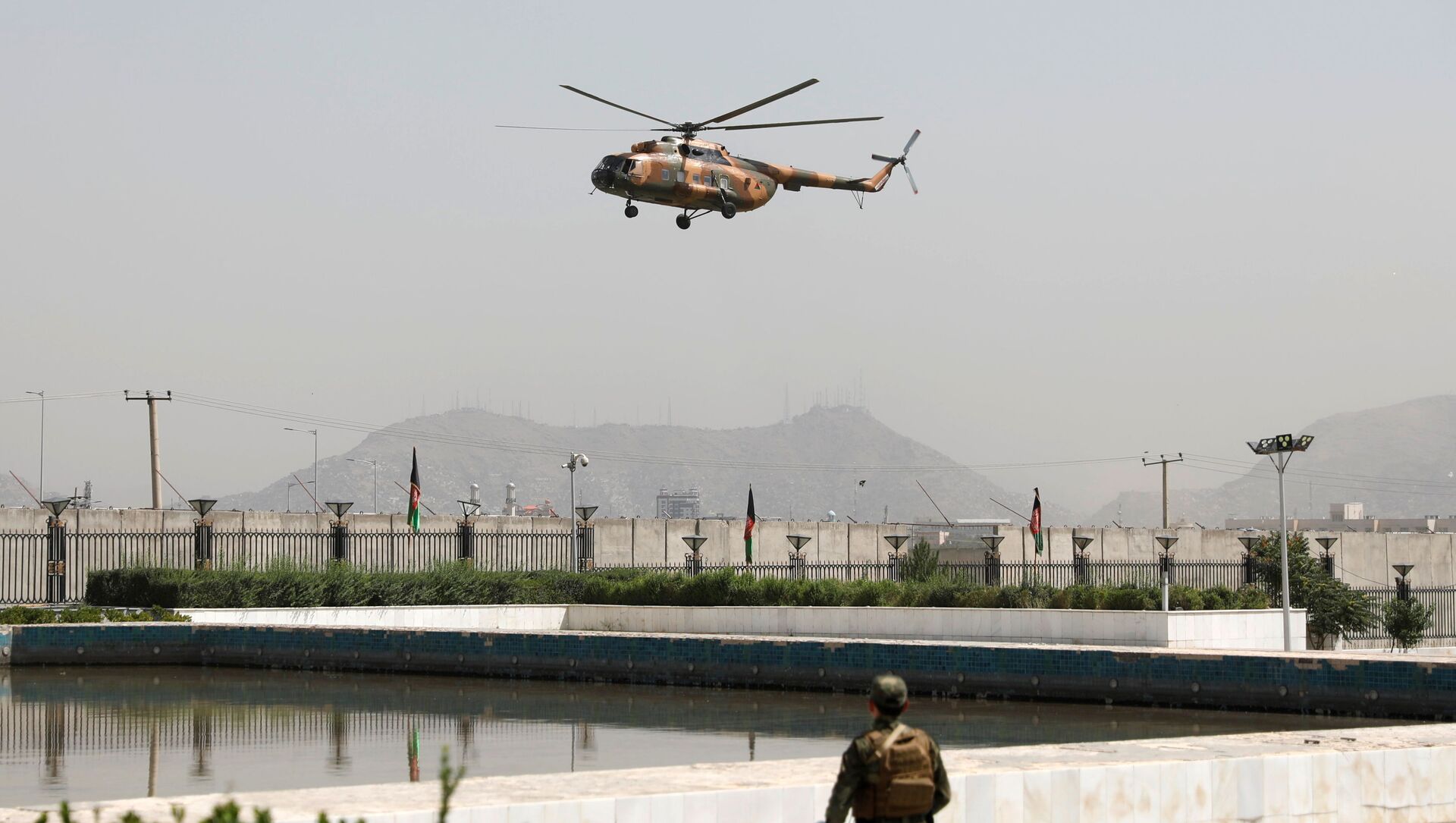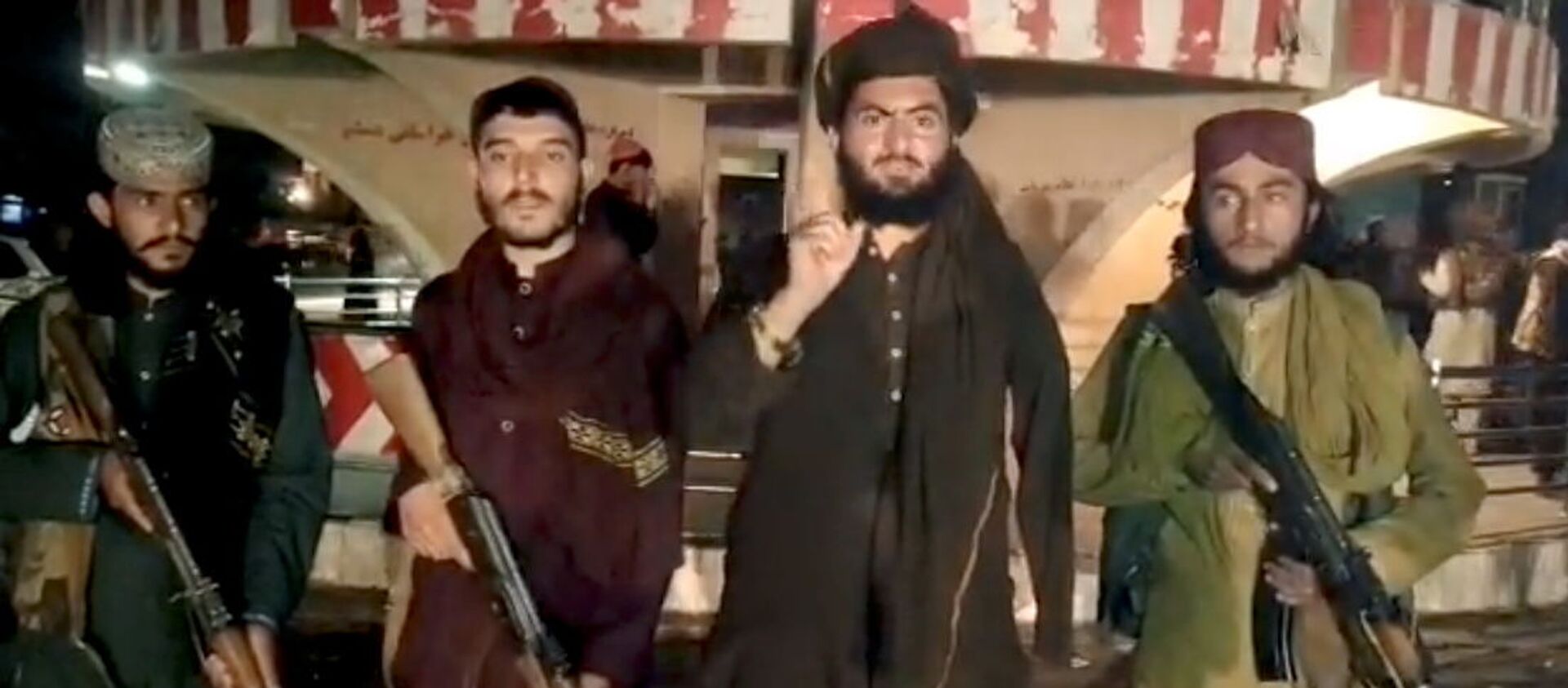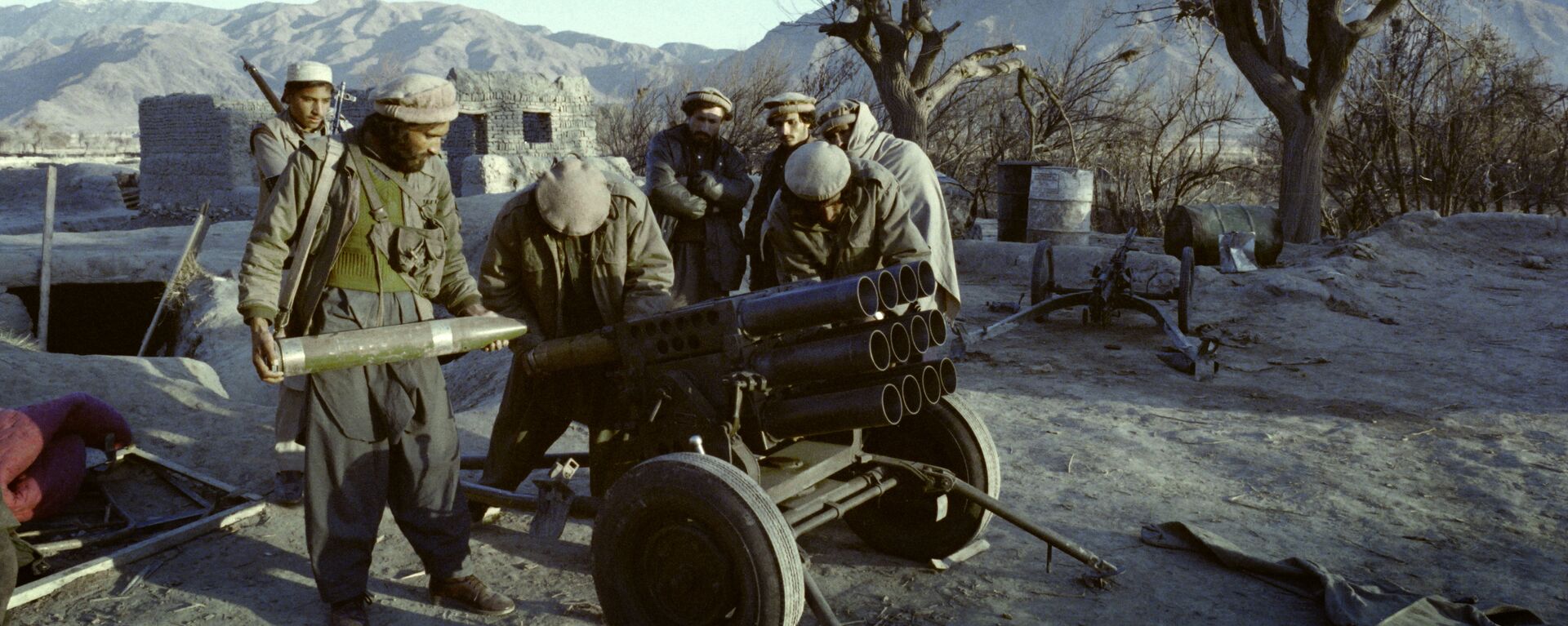Afghanistan’s Ambassador to US Pleas for Air Support Amid Fears Taliban May Be in Reach of Kabul
10:33 GMT 12.08.2021 (Updated: 10:55 GMT 12.08.2021)

© REUTERS / STRINGER
Subscribe
The Sunni Islamist militant group’s rapid offensive has seen it take ten of 34 of Afghanistan’s provincial capitals in one week. On Thursday, the militants entered the strategic city of Ghazni, situated just 150 km south of Kabul.
Afghan Ambassador to the US Adela Raz has urged the Pentagon to reverse its stance on the ‘feasibility’ of urgent air support to Afghan forces, and warned that her countrymen and women were prepared to fight “to the last minute” to defend their country against the Taliban’s* onslaught.
“It is feasible because you did that, you did that post 9/11, and it was effective. You took control of the entire country in two weeks, and I was there,” Raz said, speaking to News Nation Wednesday, and referring to Pentagon spokesman John Kirby’s comments earlier in the day that it wasn’t always “feasible” for the US to provide air support to Afghan forces.
Raz warned that the remaining US air support is “extremely limited” and called on President Biden to increase assistance even as the last US and NATO ground forces are set to evacuate the country by the end of the month. The diplomat added that the “quick” speed of the US retreat from her country had “created consequences.”
Deflecting criticisms by US officials, including Biden, about the Afghan security forces’ low effectiveness against the Taliban to date, Raz insisted that “we have been fighting for ourselves and for the peace and security of the rest of the world. It’s more of a sophisticated security concern than Afghans fighting to defend their country. That we’re doing and we will do it to the last minute.”
The ambassador also called on the US and its allies to reimpose sanctions, including travel bans, on more Taliban leaders, and indicated there was always “hope” for negotiations with the militant group, “we have to be also cautious that we should not put all our eggs in one basket in assuming that there would be a political solution” amid a lack of interest from the Taliban to negotiate.
“I think for every Afghan [it’s difficult], because we don’t advocate for war. But there is a time when we need to defend ourselves,” she stressed.
Commenting on recent reports by US intelligence that Kabul could fall to the militants within six to 12 months of the departure of US and NATO forces, the diplomat said that “if I talk about the fall of Kabul then I’m talking about shattering my hopes.”
Raz was appointed Afghanistan’s ambassador to the US in July, replacing Roya Rahmani, who served as the country’s top representative in Washington from December 2018 until the middle of last month. Before her appointment to the ambassadorship, Raz worked as Afghanistan’s permanent representative to the United Nations, and served as a deputy spokesperson for former President Hamid Karzai before that.
Taliban Blitzkrieg
Raz’s remarks come amid a dramatic worsening of the security situation in Afghanistan, with Taliban offensives on urban areas enabling the militants to capture ten provincial capitals in one week. Before the offensive began, the hardline Sunni militia claimed to control 85 percent of the country, but no cities and no major highways. Now, ten major cities, including Farah and Zaranj to the country’s southwest, and Sheberghan, Sar-e-Pul, Aibak, Pul-e-Khumri, Kunduz, Taloqan and Faizabad to the country’s north, have fallen to the militants. On Wednesday, Afghan authorities confirmed that Ghazni, a city 150 km southwest of Kabul, had also been seized.
🇦🇫 Taliban take 10th provincial capital as Ghazni falls. Almost a third of the country's 34 provincial capitals are now under Taliban control. #Afghanistan #AfghanTaliban #Talibans pic.twitter.com/tZxBy4XSjx
— B News (@BNewsTop) August 12, 2021
In his press briefing Wednesday, Kirby stressed that “no potential outcome has to be inevitable, including the fall of Kabul, which everybody seems to be reporting about. It doesn’t have to be that way.”
The Pentagon spokesman added that the outcome “really depends on the kind of political and military leadership that the Afghans can muster to turn this around. They have the capability, they have the capacity and now it’s really time to use those things.”
Kirby admitted that the Pentagon was not in a position to answer why Afghan forces’ 300,000 troop-strong army was unable to defeat a Taliban force estimated by President Biden to number 73,000 militants, except to suggest that the Kabul government needs to have “the will and leadership” to use its advantages, including an air force, training and weapons, “to their own benefit”.
RT @AFP: The Taliban in provincial capitals.#AFPgraphics map of Afghanistan locating the cities that have fallen to the Taliban in the past week pic.twitter.com/DPiSHQmUCt
— AFP Graphics RT (@AFPGraphicsRT) August 12, 2021
In recent weeks, photos and videos from the conflict zone have shown dozens of Afghan security force units shattering before Taliban advances, with troops fleeing or surrendering with their weapons and vehicles to the militants. The Kabul government’s elite commando units, which have better training and higher morale, have fared better, temporarily taking back areas captured by the Taliban, but have been stretched thin by the militants’ advances throughout the country. The commando units are estimated to number about 21,000 troops.
President Biden told reporters Tuesday that he does “not regret” his decision to pull out of Afghanistan after nearly 20 years of war, and said it was time for Afghan leaders to “come together” and “fight for themselves, fight for their nation”. The US, he said, had spent over a trillion dollars (some estimates suggest closer to $2 trillion) and lost thousands of American troops, and provided training and equipment to hundreds for thousands of Afghan soldiers.
Generational War
Several generations of Afghans have now grown up in a country engulfed in war. The current 19+ year conflict between the US-led coalition and the Taliban began in late 2001, after the United States invaded the country over the Taliban’s refusal to hand suspected 9/11 mastermind Osama bin Laden over to US custody. Before the invasion, the country was a failed state ruled by feuding factions and warlords, with the Taliban being the largest among them. The Taliban took over Kabul in the mid-1990s, several years after the collapse of the Moscow-friendly communist Afghan government. The war in Afghanistan began in the late 1970s, after the CIA, Saudi, Pakistani and Chinese intelligence began to provide funding, equipment and training support for an Islamist jihadist insurgency against the country’s Soviet-friendly secular socialist government.
* Designated a terrorist group in Russia.



